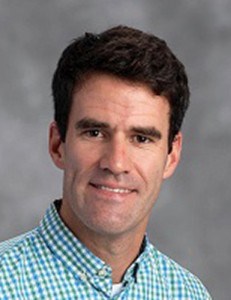Craig Hobin
Sarnia’s Craig Hobin is a special contributor reporting from the Olympics in Brazil.
For decades, Brazil has been touted as “the country of the future,” but in many ways the moniker has become a monkey on the back of this restive republic.
Whenever its inevitable rise on the world stage appears within grasp, it always manages to slip away.
Ten years ago, this emerging economy thought it close to being accepted into the upper echelon of the community of nations, but this idea has come crashing down. Successful World Cup and Olympic bids announced when the country was soaring were supposed to celebrate this realization.
Similar to Sydney in 2000 and Beijing in 2008, the 2016 Summer Games in Rio de Janeiro were to be the city’s coming-out party, announcing that Brazil was ready for the big time. But it never happened that way.
A lethargic economy, a government corruption scandal unfathomable in scope, a potentially impeached president, an outbreak of the Zika virus, profoundly polluted bodies of water, escalating urban crime waves and recent police raids on terror cells with aims of disrupting the Olympics, has the global media anticipating total anarchy.
However, not here in Brazil. The people are awaiting these Olympics with bated breath, but not predicting impending calamity. As the IOC prepares to declare, “Let the Games begin,” the excitement is palpable, with people posing for pictures with anything Olympics-related and television regularly spotlighting sports and athletes for Brazilians to get better acquainted, the mood here eludes the concerns one sees on CNN.
Brazilians are right in feeling this way, for the most part. The acting president is placating fears and ensuring stability with an increased security force (twice the size used at London 2012), the World Health Organization has severely downgraded Zika-related risks, and nobody will be more surprised than Brazilians if a terror attack transpires (Brazil has not exactly been a top ISIS target).
For locals, the most legitimate anxiety is all too familiar. Crime in Brazil has risen sharply, and the country already had some of the highest violence rates this side of a warzone.
Rio itself contains some of the largest slums on earth, known as “favelas,” dangerous neighbourhoods where the police are sometimes without authority. The stave off trouble, the military will occupy the unpacified favelas throughout the course of the Olympic and Paralympic Games.
Framed originally as the opportunity to showcase Brazil to the world, these Olympics may instead serve to justify French President Charles De Gaulle’s droll addition to the nickname that still dogs the country, when he said "Brazil is the country of the future, and always will be."
For Brazilians, the future may not be now but the present is fascinating.
Craig Hobin is a St. Christopher grad teaching history and international relations at the American School of Brasilia.
